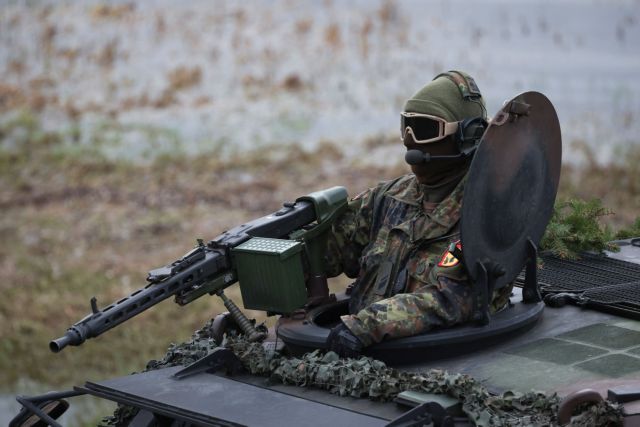
NATO's European members must find an additional 56 billion euros annually to meet the alliance's defense spending target, but the deficit has been halved over the past decade, according to research conducted by the German Ifo Institute on behalf of NATO. Financial Times.
The survey showed that several of the EU countries with the biggest shortfalls in NATO's defense spending target of 2% of GDP – including Italy, Spain and Belgium – also have the highest levels of debt and fiscal deficits in Europe.
Our country ranks third in defense spending
Pressure on the 32-member US-led coalition to increase defense spending in response to Russia's large-scale invasion of Ukraine is intensifying fiscal pressures in Europe at a time of low growth and many countries tightening their fiscal plans. Economists say this will make it difficult for underdeveloped countries to bridge the gap.
Germany and Greece spent the least on defence
The biggest lag was in Germany, which last year spent 14 billion euros less than it needed to meet the index, according to the Ifo institute. However, Berlin has halved this gap over the past decade, after adjusting for inflation, and plans to close it completely this year.
The next largest European deficit was €11 billion in Spain, €10.8 billion in Italy, and €4.6 billion in Belgium. These three countries were among the six European Union countries whose debt exceeded 100% of their gross domestic product last year.
Italy also recorded one of the highest budget deficits in the bloc at 7.2%, and interest costs are expected to rise to more than 9% of government revenues this year.
The first Greek in disability
Last year, the United States paid for two-thirds of NATO's total defense spending, €1.2 billion, more than double the €361 billion defense spending by EU members, the United Kingdom and Norway combined.
New EU fiscal rules coming into force next year are expected to lead to further budget cuts as countries try to adhere to a 3% limit on annual deficits and a 60% debt-to-GDP limit.
More than 10 countries in the bloc are expected to breach the annual deficit limit, which is likely to trigger sanctions from the European Commission, with Greece leading the way.
But during negotiations concluded last year, Poland, the Baltic states and Italy, as well as Greece, successfully demanded that defense spending be treated more favorably under the new rules.
The Commission will therefore consider military spending as a mitigating factor when assessing whether to take action against countries that violate the annual deficit limit.
NATO Secretary-General Jens Stoltenberg told reporters on Thursday that two-thirds of members would meet the 2% target this year, compared to just three in 2014, when the defense investment pledge was agreed after Russia's annexation of Crimea.
Eurozone countries are on track to double their defense spending from €150 billion in 2021 to €320 billion in 2026, according to Pantheon Macroeconomics, which estimates this will boost sluggish growth by 0.2 to 0.3%.
Norway this week became the latest European NATO member to say it will meet the alliance's 2% target by 2024, a year ahead of schedule.

“Avid problem solver. Extreme social media junkie. Beer buff. Coffee guru. Internet geek. Travel ninja.”





More Stories
“Recycling – Changing the water heater”: the possibility of paying the financing to the institution once or partially
Libya: US General Meets Haftar Amid Tensions Between Governments
New tax exemption package and incentives for business and corporate mergers..